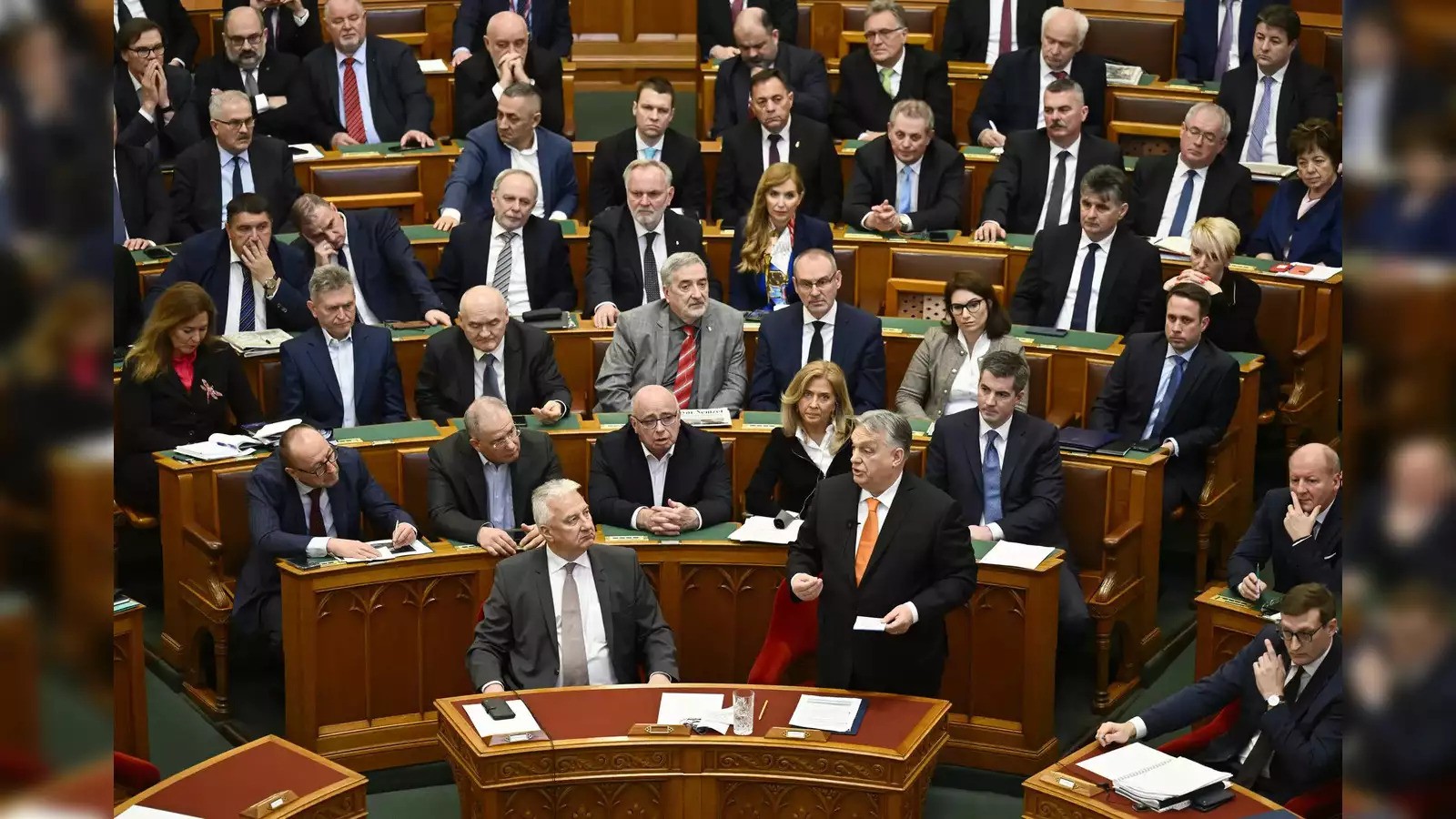STOCKHOLM: Sweden’s bid to join NATO, which had been stalled for nearly two years, cleared its final hurdle Monday when Hungary agreed to let the Nordic country join the alliance.It marked the end of more than 18 months of delays by Budapest’s nationalist government, which had frustrated Hungary’s allies.Before a new member can join the alliance, all existing NATO countries must approve it. Hungary was the sole holdout. Here’s a look at Sweden’s complicated path to NATO membership.
WHY DOES SWEDEN WANT TO JOIN NATO?
Sweden has been out of military alliances for over 200 years and has long ruled out joining NATO. However, following Russia’s full-scale invasion of Ukraine in February 2022, it abruptly abandoned its long-standing policy of nonalignment and applied to join the alliance alongside neighboring Finland. Sweden and Finland, which joined the military alliance last year, had already formed close ties with NATO following the end of the Cold War, but public opinion remained staunchly opposed to full membership until the conflict in Ukraine.
Nonalignment was viewed as the best way to avoid conflict with Russia, their powerful neighbor in the Baltic Sea region. However, Russian aggression caused a dramatic shift in both countries, with polls showing an increase in support for NATO membership. Political parties in Finland and Sweden agreed that full membership in the US-led alliance provided the necessary security guarantees.
WHY IS IT TAKING SO LONG?
While Finland became NATO’s 31st member in April, Sweden’s application has been pending. Except for Turkey and Hungary, all alliance members gave thumbs up.On January 23, Turkish legislators voted in favor of Sweden’s membership in NATO. To allow Sweden to join, Turkish President Recep Tayyip Erdogan imposed a series of conditions, including a tougher stance against groups that Turkey considers threats to its security, such as Kurdish militants and members of a network blamed for a failed coup in 2016. Although the Swedish government attempted to appease Erdogan by lifting an arms embargo on Turkey and promising to cooperate in fighting terrorism, public demonstrations in Sweden by supporters of the outlawed Kurdistan Workers’ Party, or PKK, and anti-Muslim activists who burned the Quran complicated the situation.
Pressure from the United States and other NATO allies on Turkey to drop its objections to Swedish membership appeared to be ineffective until Erdogan announced at a NATO summit last year that he would send the documents to Parliament for approval. However, the issue was stalled in Parliament until lawmakers finally voted on it and approved Sweden’s accession protocol. The Turkish government completed the process by publishing the measure in the official gazette.
The Hungarian parliament has now ratified Sweden’s NATO membership bid, putting an end to the nationalist government’s more than 18-month delay. Initially, Hungary provided no clear explanation for its delays, and Prime Minister Viktor Orbán insisted that his country would not be the last to give approval. However, the tone toward Stockholm shifted last year, with Hungary accusing Swedish politicians of telling “blatant lies” about the state of Hungary’s democracy. Orbán has broken ranks with NATO allies by taking a Kremlin-friendly stance on Russia’s invasion of Ukraine.
WHAT WOULD SWEDEN BRING TO THE ALLIANCE?
The inclusion of Sweden would leave the Baltic Sea almost surrounded by NATO countries, strengthening the alliance in the strategically important region. The Baltic Sea is Russia’s maritime point of access to the city of St. Petersburg and the Kaliningrad enclave. Sweden’s armed forces, though sharply downsized since the Cold War, are widely seen as a potential boost to NATO’s collective defense of the region. Sweden has a modern air force and navy, and it has committed to increasing defense spending to meet NATO’s target of 2% of GDP.Swedish forces, like the Finns, have long participated in joint NATO exercises.
HOW HAS RUSSIA REACTED?
Not surprisingly, Moscow reacted negatively to Sweden and Finland’s decision to abandon nonalignment and seek NATO membership, warning of unspecified consequences. Russia said the move had a negative impact on the security situation in Northern Europe, which “had previously been one of the most stable regions in the world.”Earlier this year, Sweden’s top military commander, Gen. Micael Bydén, said that all Swedes should mentally prepare for the possibility of war, and on February 19, Thomas Nilsson, head of Sweden’s external intelligence service, MUST, said that “the situation has continued to deteriorate during 2023.” “In the event of NATO membership, we must have the capability through an alliance to counter a revanchist and unpredictable Russia,” the agency wrote in its report. Both Sweden and Finland have issued warnings about the increased risk of Russian interference and hybrid attacks.

